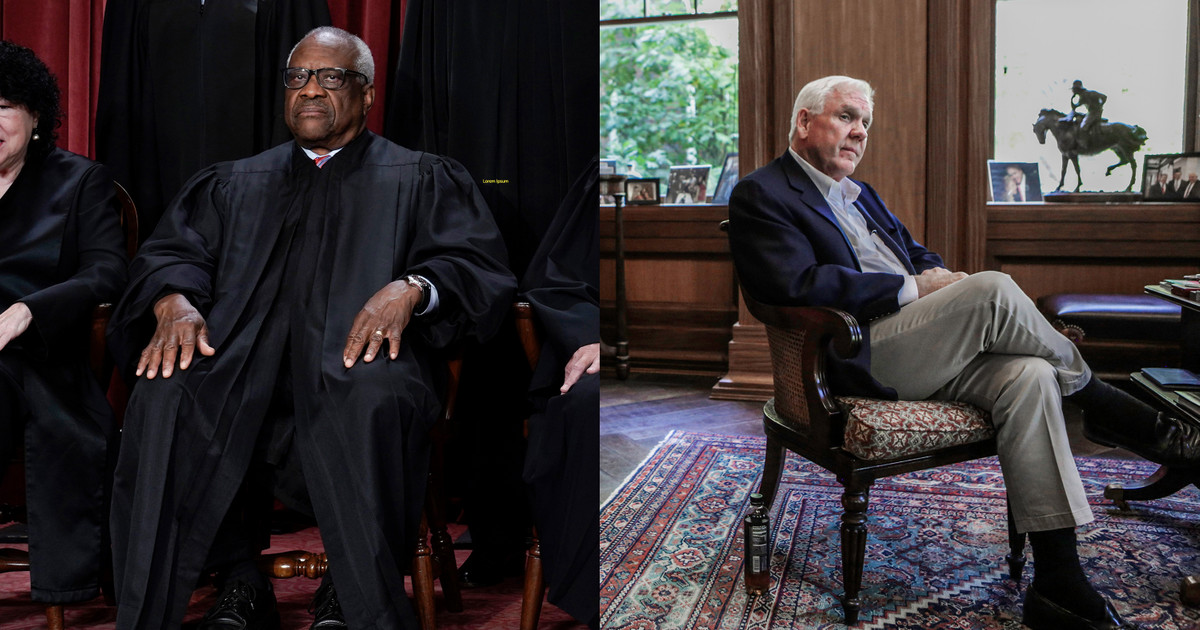cuddlemonkey
Well-known monkey
- Joined
- May 17, 2019
- Messages
- 4,817
- Reaction score
- 6,184
Offline
It seems that a billionaire GOP donor has spent a small fortune on vacations for Ginni and Clarence Thomas.

 www.propublica.org
www.propublica.org

Clarence Thomas and the Billionaire
Island-hopping on a superyacht. Private jet rides around the world. The undisclosed gifts to Thomas have no known precedent in the modern history of the Supreme Court. “It’s incomprehensible to me that someone would do this,” says one former judge.

